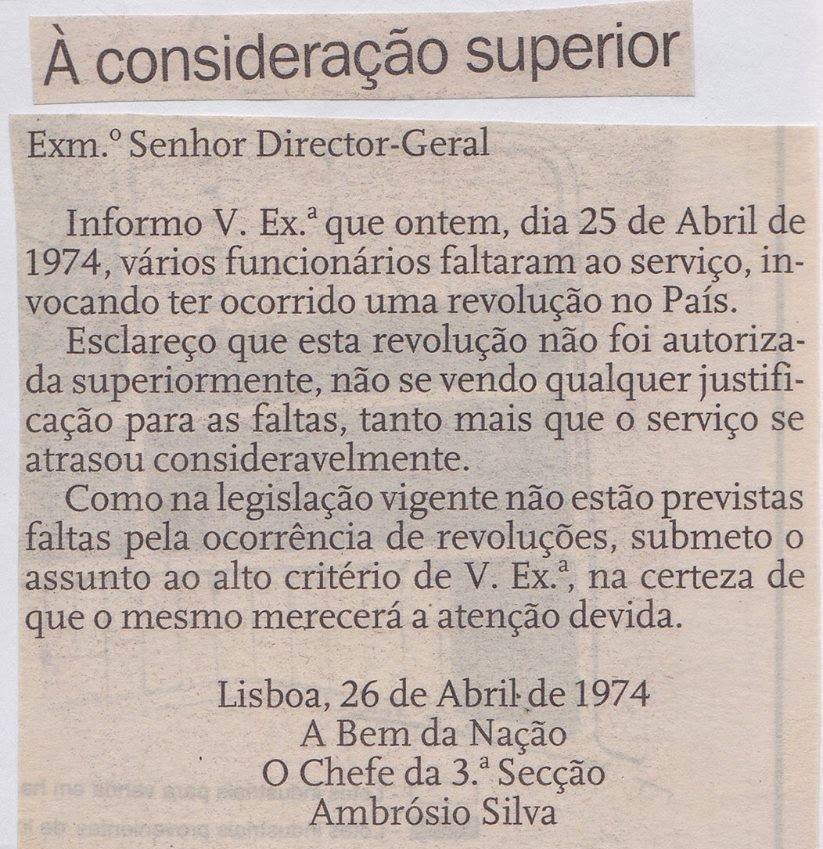
Magistral desmantelamiento por parte de Dominique de Villepin, ex Primer Ministro francés, de la retórica absolutamente irresponsable de Macron sobre el envío de tropas terrestres de la OTAN a Ucrania (el propio Villepin lo llama irresponsable).
Lo traduje completo, porque creo que es muy importante que la gente sea consciente del peligro extremo detrás del intento de Macron (y algunos otros líderes de la OTAN) de escalar el conflicto:
"Para que este debate [sobre el envío de tropas terrestres] hubiera sido útil, primero habría sido necesario que pudiéramos responder cinco preguntas. Cinco riesgos asociados con esta escalada, este paso que daríamos si enviáramos tropas terrestres tropas, enviar combatientes Cinco riesgos.
El primero es la expansión del conflicto. Si enviamos tropas terrestres, ¿sabemos si del lado ruso otros enviarán tropas terrestres del otro lado? ¿Nos enfrentaremos a combatientes africanos, nos enfrentaremos a combatientes asiáticos, nos enfrentaremos a combatientes de Medio Oriente en este sur global que también quiere enfrentarse a Occidente? Primer riesgo.
[Comentarios del presentador: Este no me parece un escenario favorable...]
Si los occidentales, los europeos y los franceses envían tropas allí, ¿no cree que la solidaridad también jugará del lado ruso? Creo que todavía tenemos que hacernos esa pregunta. En cualquier caso, nuestra diplomacia no ha hecho lo que debía para aislar a Rusia. Si Rusia estuviera aislada, lo sabríamos... Creo, dicho sea de paso, que lamentablemente estamos más aislados que Rusia.
Segunda cuestión importante: nuevo frente. Riesgo de un nuevo frente. Lo advertí, fui de las pocas voces que dijeron 'cuidado, Ucrania es una situación peligrosa pero ¿qué pasa si se abre otro frente?'. Se ha abierto el frente en Gaza y Oriente Medio. Pero hay otros frentes que se pueden abrir: en Corea, en África... Entonces, ¿vamos a hacer una guerra así en los 5 continentes? Hay que tener en cuenta esta realidad: el mundo no se limita al drama y la tragedia de Ucrania. Resulta que Estados Unidos es una potencia mundial y que pretendemos serlo también, por lo que nos preocupan los grandes equilibrios y el orden del mundo y, desgraciadamente, nuestra diplomacia no tiene suficientemente en cuenta estos desórdenes que afectan a la congoleños, sudaneses, etc.
Tercer riesgo importante: el riesgo terrorista. No estoy pensando en el terrorismo que vendría de nuestros oponentes en Ucrania, sino en el terrorismo oportunista. Cuando hay situaciones de este tipo de desorden, ataca el terrorismo. Y les recuerdo: aquí en Francia hemos planeado no un año de guerra, sino un año de celebraciones. Dentro de unos meses conmemoraremos el 80º aniversario del desembarco del Día D y vendrán delegaciones de todo el mundo. Vamos a pasar varios meses celebrando los Juegos Olímpicos. Si necesitamos movilizarnos, movilicémonos, pero tal vez debería haberse hecho un poco más: no veo una economía de guerra, la preparación de las mentes en términos de defensa civil y guerra híbrida, no veo nada... No saquemos de la chistera la idea de ir a la guerra en Ucrania sin habernos preparado un poco...
Cuarto riesgo: estamos en vísperas de unas elecciones estadounidenses que determinarán el nuevo orden mundial. Es una apuesta segura que nos dirigimos hacia una nueva era de aislacionismo y proteccionismo como el mundo nunca ha visto. Estamos viendo una división en este nuevo orden mundial entre Trump y una China que acaba de celebrar la reunión de su parlamento y se está volviendo más introvertida, más centrada que nunca en su seguridad. Este es un contexto global general que debe tenerse en cuenta.
Y luego hay un último elemento que puede ser uno de los más importantes: el riesgo nuclear. Conozco a los buenos expertos, a los grandes expertos que hablan sobre este tema y los respeto inmensamente. Pero enviar tropas terrestres, combatientes, nos coloca en una situación en términos de disuasión que nunca habíamos conocido. Cuarenta años de Guerra Fría: las fuerzas del Pacto de Varsovia y las fuerzas de la OTAN nunca se enfrentaron. Y no es casualidad: es por una realidad que tiene que ver con la gramática de lo nuclear.
La regla de disuasión se basa en el principio de destrucción mutua asegurada. Es decir, si uno usa la bomba y el otro responde, estamos todos muertos. [... ] Creo que la gramática nuclear significa que hoy el riesgo de que haya tropas terrestres de la OTAN en Ucrania presenta un riesgo y que este riesgo, para las potencias responsables, es inaceptable. Viajo lo suficiente por el mundo como para haber observado algo durante 15 años: el uso de armas nucleares se basa en culturas políticas, culturas sociales y civilizaciones. El mundo está cambiando y lo que parecía impensable hace 10 o 15 años parece hoy diferente: la retórica del enemigo, el odio al otro, se ha desarrollado hasta el punto de que vivimos en una comunidad internacional que puede querer ajustar cuentas con el otro. . [... ] Hoy, y no estoy pensando sólo en los rusos, no olvidemos la proliferación nuclear con países como Pakistán y muchos otros que ahora tienen armas nucleares.
Y es en esto donde el principio de responsabilidad es esencial, y hay una regla que hay que extraer de todo ello: la lógica de la fuerza, cuando no se controla, conduce a una escalada que puede ser mortal. Esto es lo que hace que la situación en Ucrania sea un peligro real y también es lo que hace -porque este principio de la lógica de la fuerza incontrolada lo aplicaría gustosamente a la situación en Gaza- es lo que hace que la política israelí aplicada hoy en Gaza sea un peligro real. Porque no hay control sobre el uso de la fuerza. Y cuando miras [...] todos los frentes están vinculados, todas las crisis están vinculadas".
Masterful takedown by Dominique de Villepin, former French Prime Minister, of Macron's utterly irresponsible rhetoric on sending NATO ground troops to Ukraine (Villepin himself calls it irresponsible).
I translated it in full, because I think it's so important people are aware of the extreme danger behind Macron's (and some other NATO leaders) attempt to escalate the conflict:
"For this debate [over sending ground troops] to have been useful, it would have first been necessary for us to be able to answer 5 questions. Five risks associated with this escalation, this step we would be taking if we were to send ground troops, send fighters. Five risks.
The first is the expansion of the conflict. If we send ground troops, do we know if on the Russian side others will send, on the other side, ground troops? Will we face African fighters, will we face Asian fighters, will we face Middle Eastern fighters in this global south that also wants to take on the West? First risk.
[Host comments: This does not seem to me a favored scenario...]
If Westerners, Europeans, French send troops there, don't you think that solidarity will also play on the Russian side? I think we still need to ask ourselves that question. In any case, our diplomacy has not done what it should have to isolate Russia. If Russia were isolated, we would know it... I think, by the way, that we are more isolated, unfortunately, than Russia.
Second major question: new front. Risk of a new front. I warned, I was among the few voices to say 'be careful, Ukraine is a dangerous situation but what happens if another front opens?'. The front in Gaza and the Middle East has opened. But there are other fronts that can open: in Korea, in Africa... And so, are we going to wage war like this on all 5 continents? This reality must be taken into account: the world is not limited to the drama and tragedy of Ukraine. It turns out that America is a global power and that we claim to be a global power too, so we are concerned by the major balances and the order of the world, and unfortunately our diplomacy does not sufficiently take into account these disorders which concern the Congolese, the Sudanese, etc.
Third risk which is important: the terrorist risk. I am not thinking of terrorism that would come from our opponents in Ukraine, I am thinking of opportunistic terrorism. When there are situations of this type of disorder, terrorism strikes. And I remind you: we have planned here in France not a year of war, but a year of celebrations. In a few months, we will commemorate the 80th anniversary of the D-Day landings and delegations will come from all over the world. We are going to spend several months celebrating the Olympics. If we need to mobilize, let's mobilize, but maybe it should have been done a bit more: I don't see a war economy, the preparation of minds in terms of civil defense and hybrid warfare, I see nothing... You don't just pull the idea of going to war in Ukraine out of a hat without having prepared a little...
Fourth risk: we are on the eve of an American election that will determine the new world order. It's a safe bet that we are heading for a new era of isolationism and protectionism like the world has never seen. We are seeing a split in this new world order between Trump and a China that has just celebrated the reunion of its parliament and is becoming more introverted, more focused on its security than ever. This is a general global context that must be taken into account.
And then there's one last element that may be one of the most important, which is the nuclear risk. I know the good experts, the great experts who speak on this subject and I respect them immensely. But sending ground troops, fighters, places us in a situation in terms of deterrence that we have never known. Forty years of Cold War: the forces of the Warsaw Pact and NATO forces never clashed. And it's not by chance: it's because of a reality that relates to the grammar of nuclear.
The rule of deterrence is based on the principle of mutual assured destruction. That is, if one uses the bomb and the other responds, we're all dead. [...] I think the nuclear grammar means that today the risk of NATO ground troops in Ukraine presents a risk and that this risk, for responsible powers, is unacceptable. I travel enough around the world to have observed something for 15 years: the use of nuclear weapons is based on political cultures, societal cultures, and civilizations. The world is changing and what seemed unthinkable 10 or 15 years ago appears today differently: the rhetoric of the enemy, the hatred of the other, has developed to a point where we live in an international community that may want to settle scores with the other. [...] Today, and I'm not just thinking of the Russians, let's not forget nuclear proliferation with countries like Pakistan and many others that now have nuclear weapons.
And it is in this that the principle of responsibility is essential, and there is a rule that must be drawn from all this: the logic of force, when not controlled, leads to an escalation that can be deadly. This is what makes the situation in Ukraine a real danger and it's also what makes - because this principle of the logic of uncontrolled force I would gladly apply to the situation in Gaza - it's what makes the Israeli policy applied today to Gaza a real danger. Because there is no control over the use of force. And when you look [...] all fronts are linked, all crises are linked."







